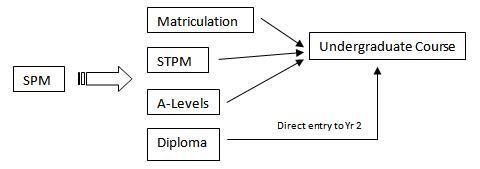I wrote this entry thinking about Malaysian students coming to the end of their high school life, 17 yr old youngsters who thought "Hey chemical engineering sounds like a good field, but how do I go about it in Malaysia?" This was the question I asked myself 5 yrs ago & I hope to present my view as unbiased as possible & maybe a young Malaysian reading this will get some useful information! ;)
It is necessary to have a bachelor's degree in chemical engineering; this is due to the professional nature of the job which requires you to be equipped with a basic set of skills and knowledge before you can venture into this career. This undergraduate degree is provided by private and public universities across Malaysia and takes 4 years to complete; below is a list of several local universities that offer this course:
Public Universities
- Universiti Malaya (Kuala Lumpur)
- Universiti Teknologi Malaysia (Johor)
- Universiti Kebangsaan Malaysia (Selangor)
- Universiti Putra Malaysia (Selangor)
- Universiti Sains Malaysia (Penang)
- Universiti Malaysia Pahang (Pahang)
- Universiti Malaysia Sabah (Sabah)
- Monash University (Selangor)
- University of Nottingham (Selangor)
- Taylor's University College (Selangor)
- Curtin University(Sarawak)
- Universiti Teknologi Petronas (Perak)
Public university
To enter a public university, you've to go public all the way: literally! After SPM, you can either go for STPM (in a public school), Matriculation (in a public matriculation college), or diploma (in a public university).

STPM
- easy to enter, cheap (study in public school)
- the toughest pre-university syllabus in Malaysia (in my opinion)
- takes 2 years to complete
Matriculation
- difficult to gain entry (study in matriculation colleges)
- the syllabus is easier than STPM
- takes a year to complete
Diploma
- relatively easier to enter (than matriculation, study in public university)
- highly specific course (I encourage this route for those who are certain about becoming a chemical engineer)
- takes 3 years to complete: upon completion, you can directly enter 2nd yr of the undergraduate course
Private university
It's easier but costlier to enter a private university; the government subsidizes 90% of the total fees in public universities, but there are many scholarships available if you want to study in a private university. A typical study year costs around RM30k. Different universities have different entry requirements; generally if you fulfill the academic requirements and can afford the tuition fees, you should have no problem landing a place. There are a variety of twinning programs available so there are plenty of opportunities for you to gain international exposure.
Quality of education
As the saying goes, you get what you pay for. Studying in a public institution is very attractive not only because it's affordable but the government also provides funding for co-curricular activities, which is seldom present in private universities. The facilities provided by public universities are generally better and more well-equipped than those in private universities. However as private universities are fundamentally business-orientated, there is a check and balance to ensure that the students get the quality education that they paid for.
To conclude, I believe that being a young adult means being responsible for your own future. Do thorough research before signing up for any course; ask yourself the following questions:
- What career do I want to pursue? What is the job scope of being a chemical engineer?
- What is my financial budget?
- Can I get a scholarship/loan?
- Where do I take this course? What are the requirements?
- What about other details like accommodation, transport, etc?
I welcome feedback, especially from fellow Malaysians! :D

 FB
FB






Thanks for the post! Which pathway did you take and how would you rate it? Would you hsve it any other way?
I did my A levels after SPM and I thought it was a good choice, i thought it helped make up my mind about my degree course. Of course, once I went down the A levels route there was no going back to the public universities. I think both the A levels and STPM are excellent courses that provide students with a good background in the core sciences, which also allows quite a bit of flexibility just in case you change your mind.